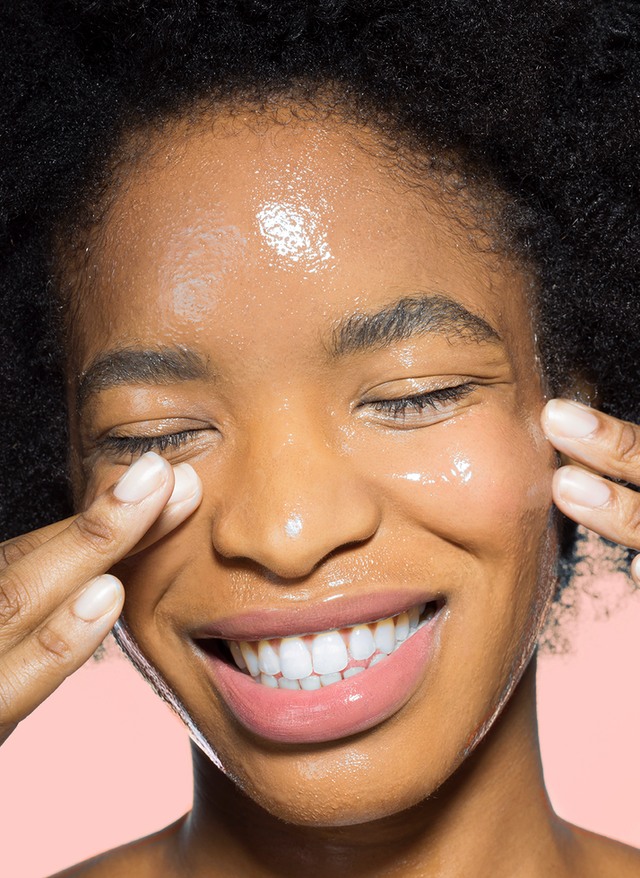What Are Humectants in Skincare? Beauty Scientists Explain (original) (raw)

Jonathan Knowles//Getty Images
Skincare product labels can have ingredients lists miles long — but what's on those lists can be crucial for choosing the best formulas for your skin. One type of ingredient to know, especially if you have dry skin on the face or body (or both)? Humectants, a category of moisturizing ingredients that can be key for making formulations that effectively hydrate skin. Good Housekeeping Institute Beauty Lab scientists explain what humectants are, how they work, and their benefits (and drawbacks).
"Humectants are water-loving ingredients that draw moisture into the stratum corneum, the top layer of skin, whether through the environment or through the deeper layer of skin (the dermis)," explains GH Beauty Lab chemist Danusia Wnek. "In face and body skincare, humectants are typically used in leave-on hydrating products like serums, lotions, and creams." They are less commonly used in hair products, since pulling moisture from the air into hair could promote frizz.
What are the benefits of humectants?
Hydration, hydration, hydration. "Skin moisturization is the main benefit of using humectants in skincare products," Wnek says. But you need more than just humectants for optimal hydration: "Any product with humectant ingredients needs to be formulated with other moisturizing ingredients," she explains. "The most effective skincare products for hydration are those that are formulated with all three types of moisturizers: humectants, occlusives, and emollients."
What Everyone's Shopping
- Humectants are a type of moisturizer, Wnek says, "but they're best used in a preformulated product rather than alone," as they can cause adverse effects or be less cosmetically elegant on skin.
- Emollients are another category of moisturizer, providing hydration and softening benefits, says GH Beauty Lab Director Birnur Aral, Ph.D. These include squalene and trigcylerides, which are lipids (fats).
- Occlusives are ingredients that lock moisture into skin, including plant butters and waxes (like shea and cocoa butter, beeswax) and petrolatum, Aral explains.
What types of humectants should I look for?
The most common types of humectants include the following compounds, Wnek says:
- Glycerin/glycerol: A clear liquid that naturally occurs in the body (as well as in animals and plants). Vegetable glycerin can be derived from coconut, soy, or palm.
- Hyaluronic acid (also known as sodium hyaluronate): A sugar molecule produced in the body that keeps tissues cushioned and lubricated, Aral says; it's found in skin, joints, and connective tissue and produced synthetically for use in skincare products.
- Urea: A colorless crystalline organic compound that naturally occurs in the body as part of skin's natural moisturizing factor (NMF), which maintains hydration. It is produced synthetically for use in skincare products.
- Sorbitol: A sugar that's naturally-occurring in plants and fruits.
- Propylene glycol: A colorless synthetic liquid also used in some foods and drinks.
Natural ingredients with humectant properties include aloe vera and honey (other common naturally-derived moisturizing ingredients like shea butter and coconut oil are actually occlusives).
Can humectants be bad for skin?
They could be, depending on the environment you're in. "Since humectants are hydrophilic (attracted to water molecules), they can draw moisture from anywhere or anything, as long as it is nearby," Wnek explains. "So there is some debate about their use in dry environments, as they may absorb water from the skin since there is little in the air, which can increase skin dryness."
However, since humectants are necessary to effectively moisturize, they're especially essential for those with dry skin. But humectants can be beneficial for any skin type, since all require some degree of hydration (even oily skin).
April (she/her) is the beauty director at Good Housekeeping, Prevention and Woman's Day, where she oversees all beauty content. She has over 15 years of experience under her belt, starting her career as an assistant beauty editor at GH in 2007, and working in the beauty departments of SELF and Fitness magazines.